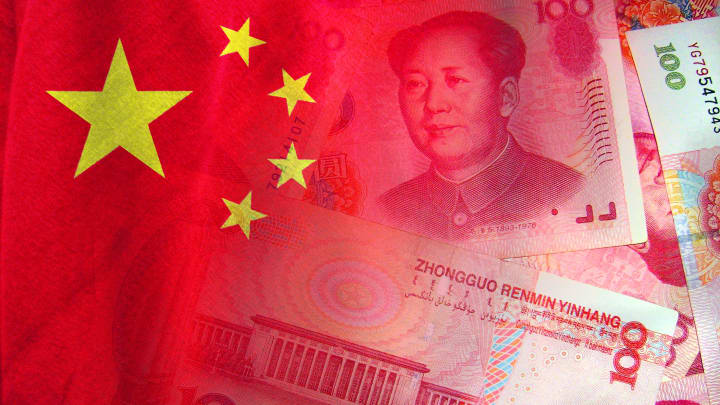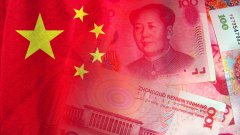
China's consumer prices were flat in September, while factory gate prices saw annual declines slow for a third month — pointing to the uneven post-Covid recovery in the world's second-largest economy that may require further policy support.
Consumer price index for September was flat on an annual basis, the National Bureau of Statistics , below than the median estimate for a 0.2% increase in a Reuters poll. CPI inched up 0.1% in August for the first year-on-year increase in three months.
Core inflation — excluding energy and food prices — however, climbed 0.8% in September from a year earlier, the bureau said . This rate of increase was similar to the one recorded in August.
China's producer price index , weaker than expectations for a 2.4% decline, after a 3% drop in August. The drop in factory prices, though, was the smallest in seven months.
Tepid prices underscore what China's top leaders labeled as a " economic recovery after the country emerged from its draconian zero Covid curbs toward the end of last year. China stands as a stark outlier among the world's major economies that are mostly still battling stubbornly high inflation after the Covid-19 pandemic peaked.
Friday's inflation print may reignite fears that China is . Despite narrowing producer prices in September, the decline is still its 12th straight monthly drop on an annualized basis.
"CPI inflation at zero indicates the deflationary pressure in China is still a real risk to the economy," said Zhiwei Zhang, president and chief economist at Pinpoint Asset Management.
"The recovery of domestic demand is not strong, without a significant boost from fiscal support. The damage from the property sector slowdown on consumer confidence continue[s] to weigh on household demand," he added.
Beijing has been rather targeted in its policy support even as rafts of economic data suggested growth remains sluggish. An ongoing debt crisis in two of China's largest real estate developers has further dented consumer confidence.
Weaker food prices were a big drag on September's consumer prices, though China's National Bureau of Statistics said this was due to high food prices last year.
On Friday, official data showed China food prices collectively fell 3.2% in September from a year earlier.
In particular, the price of pork — a key staple meat in Chinese diets — tumbled 22% last month from a year ago. That's as the price of livestock and meat collectively dropped 12.8% and the price of fresh vegetables fell 6.4%.
Services inflation was at a 19-month high of 1.3%, Capital Economics said.
"This suggests that China's low inflation rate is not primarily due to domestic weakness," the firm's Zichun Huang said in a note. "Instead, it appears to be related to excess capacity in industry as the pandemic boom in global goods demand has reversed.
Core goods inflation remained subdued at 0.3% year-on-year, Huang noted.
Month-on-month, consumer prices edged up 0.2% in September, with food prices increasing 0.3% — representing a decrease of 0.2 percentage points from August's print compared to the previous month.
"The market supply is relatively sufficient before the Mid-Autumn Festival and National Day this year, and the food price increase is slightly lower than the historical average for the same period," said Dong Lijuan, chief statistician of the Urban Department of the National Bureau of Statistics,
China's Mid-Autumn Festival and National Day were in early October this year.




